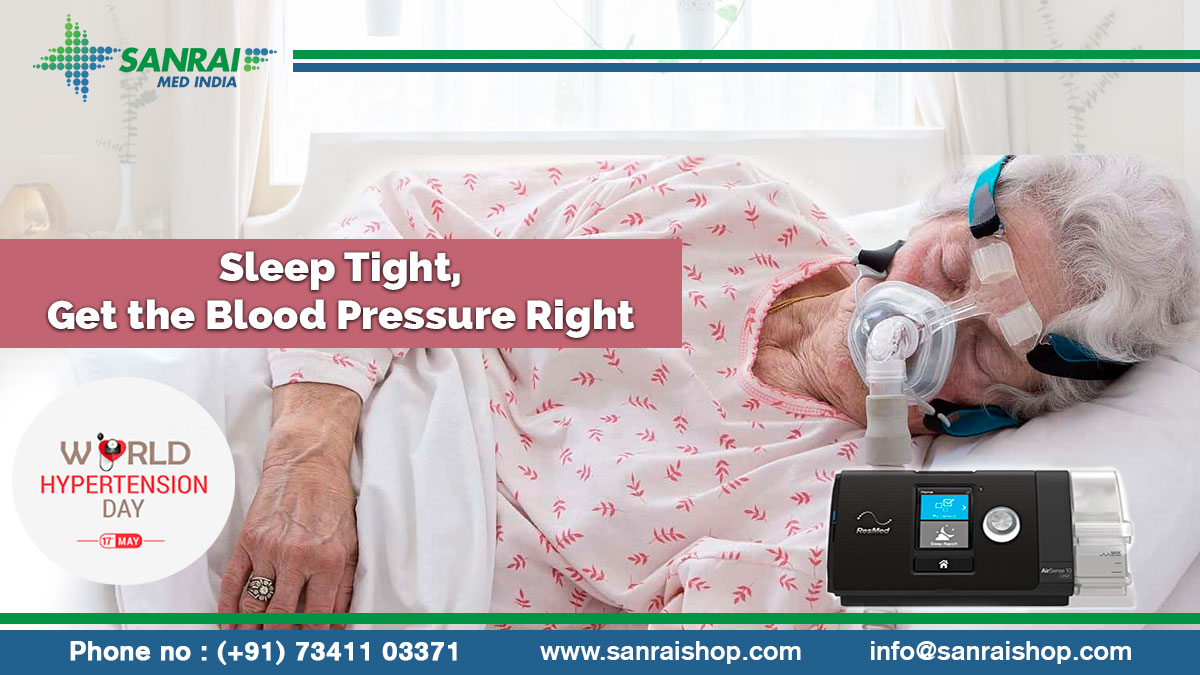No products in the cart.
CPAP, Sleep Apnea and Hypertension—The Connection
While the world is busy battling the coronavirus, a lot of other health issues that we might be facing have been either forgotten about or completely put on the backburner. Many of us consider snoring to be normal, and it is considered to be a sign of tiredness or something that old people usually do.
However, what you may not know is that snoring might be a sign of a serious underlying condition called Sleep Apnea that can sometimes lead to life-threatening diseases like type 2 diabetes and heart disease. These co-morbidities also put us at a higher risk of contracting the coronavirus infection due to the impact diabetes and heart disease have on our immune system.
Why is snoring such a serious thing?
The actual problem is not that you snore, it is the reason why you snore that is important. Obstructive Sleep Apnea or OSA is a relatively common but often undiagnosed condition that results in pauses in breathing several times a night while you sleep. Sleep apnea may lead to serious and life-threatening conditions like obesity, hypertension, type 2 diabetes, stroke and myocardial infarction.
So, do I have hypertension if I snore?
You just might. Studies have showcased that one in four people suffering from sleep apnea are at a very high risk of being hypertensive. However, when sleep apnea was addressed in these patients, it resulted in a dramatic drop in blood pressure levels.
How can I address this condition? Do I need medication or surgery?
Fortunately, no. Sleep apnea can easily be diagnosed with a non-invasive, painless test called a sleep study and the condition can be addressed with CPAP Therapy.
What is CPAP therapy? How will it help with hypertension?
CPAP, or constant positive airway pressure therapy addresses the pauses in your breathing caused by obstructive sleep apnea by keeping your airways open using mild air pressure. This therapy is painless and only requires that you wear a mask while sleeping. As you will sleep better with the CPAP machine, your body will start regulating your blood pressure levels naturally and you will start to feel better within a fortnight.
What does a CPAP machine look like?
A CPAP machine is a device that is a little larger than a clock-radio that is connected to a power outlet. This machine will have a tube connected to it, which has a nasal mask or prongs at the other end. There is a small motor in the machine that blows humidified (if needed) air into your nostrils to keep your airways open.
Does CPAP therapy hurt? Are there any side effects?
Not at all. Most long-term users do not even feel that they are wearing anything anymore after a few days of starting this therapy. There are no known serious side-effects of using this therapy.
How soon will I feel better?
Although this is relative, many of our users have reported that they slept better within a week and that their blood pressure levels had stabilized within a fortnight. Individual results, however, may vary. Please ensure that you consult your physician before starting CPAP therapy.
CPAP is a very common, well-tolerated and tested therapy for sleep apnea that has helped thousands of people around the world lead better lives. Taking a sleep test can help you detect sleep apnea in time—before the co-morbidities catch up. In India, Sanrai offers a complete sleep solution—they offer a sleep study in their lab or from the comfort of your own home, and they have a wide range of CPAP machines for you to choose from. Sanrai is a global medical products distributor with years of experience and a highly talented team that can address your queries and help you get better faster. Stay safe!

